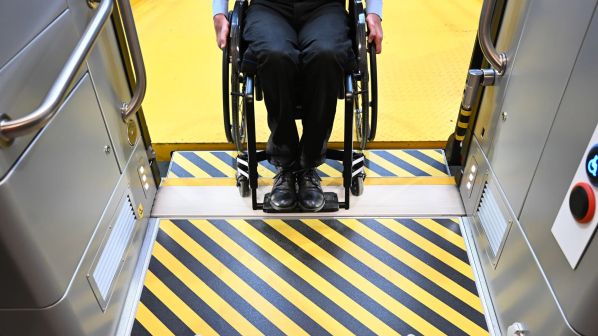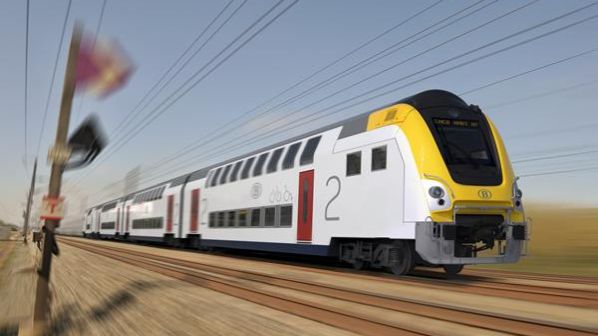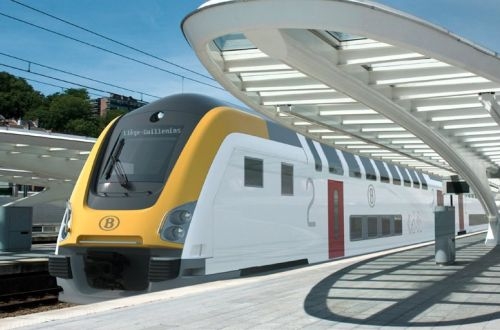BELGIAN National Railways (SNCB) has unveiled the first M7 double-deck coach that passengers with reduced mobility will be able to use completely unassisted, including those in wheelchairs.
The coach was unveiled at the Alstom plant in Bruges, where production of 130 accessible M7 coaches is being undertaken under a €400m contract awarded by SNCB in December 2020.
SNCB says that the M7 is the first coach design in Belgium to enable unassisted access. Deliveries are due to start in the second half of this year and when completed by the end of 2026, every M7 train will have at least one independently accessible car.
All other new trains ordered in future will also have a least one car of this type, according to SNCB.
The new design has been developed in close collaboration with groups representing passengers with reduced mobility. It features a boarding height of 760mm matching platforms at SNCB’s 103 fully-accessible stations.
Under its accessibility improvement programme, SNCB is working to provide this platform height by 2032 at a total of 176 stations handling 70% of its passenger traffic.
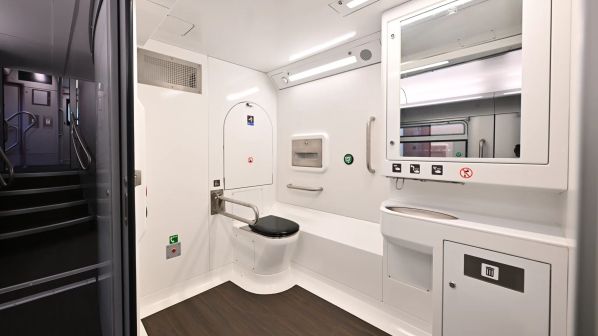
The M7 features a retractable ramp to bridge the gap between the platform and the train, while internal doors have wider openings and control buttons placed at a lower height. More handrails have been fitted, while the accessible toilet features an intercom enabling passengers to call for assistance.
Under a €3bn framework contract with Alstom, SNCB has ordered a total of 750 M7 coaches to lengthen existing double-deck EMUs or run as locomotive-hauled trains.
SNCB says that deliveries are running two-and-a-half years late, which is forcing it to keep its oldest and least reliable rolling stock in service for longer than was anticipated. Around 50% of the M7 fleet is now in service, and SNCB says that Alstom has committed to delivering the remainder from the second half of this year until the end of 2026.
As well as an independently accessible coach, each M7 formation will also feature a multi-functional coach with space for bicycles and pushchairs, with each formation providing space for at least 16 bicycles.
The M7 coaches offer improved passenger comfort with more legroom, and are equipped with real-time passenger information displays and power sockets.
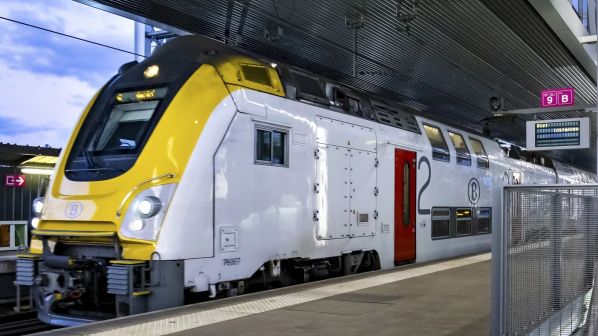
The new fleet is running on SNCB’s busiest IC services using the cross-city tunnel between North and Midi stations in Brussels, such as Eupen - Ostend, Blankenberge - Genk, Liège - Quiévrain and Gent - Tongeren.
“We want all our passengers, including those with reduced mobility, to be able to take the train in an independent manner, right from purchasing their ticket to arriving at their destination,” says SNCB CEO, Ms Sophie Dutordoir.
“The fact that SNCB did not sufficiently take this into account when ordering the first M7 coaches in 2015 was a missed opportunity. That is why in 2018 I proposed to the board making independent accessibility a priority and ordering 130 independently accessible double-deck coaches.”
“More accessible public transport is one of the things that those with reduced mobility want the most,” says Ms Karine Lalieux, federal minister for social integration.
“Being able to travel independently is one of the keys to greater inclusion of people with reduced mobility in all aspects of society.”
For detailed data on European rolling stock orders, subscribe to IRJ Pro.
